Gleanings
0glean·ings (ˈɡliːnɪŋz)
pl.n.
- the useful remnants of a crop that can be gathered from the field after harvesting
- things found or acquired by gleaning
- things that have been collected bit by bit: the gleanings of patient scholars
[Definitions gleaned from Collins English Dictionary: Complete and Unabridged (2003), Random House Kernerman Webster’s College Dictionary (2010) and The American Heritage Dictionary of the English Language (updated Fourth Edition, 2009), and then from The Free Dictionary (www.thefreedictionary.com, 2014).]
‘Perhaps all play has at its horizon the death of the plaything. When we put something to work, we use it for a particular purpose. In play, we seek not so much to use things as to use them up. The point of putting things into play may be to play them out, to see how far they go, how far we can go with the open totality of their affordances.’
Steven Connor, Paraphernalia, 5-6.
‘Records have a dual nature, in that, while they are undoubtedly things, and things with a saleable value, they are bought in order to turn them back into actions, that is to say performances, and for most people they are valued only so long as the performance they carry is itself valued; only the archivist values them as things in themselves.‘
Christopher Small, Music of the Common Tongue, 403.
‘The sites in which unwanted cultural commodities (old records, books, etc.) accumulate are, at one level, museums of failure, but by collecting failure in one place they endow it with a monumentality and historical solidity. This is one of the paradoxes of material culture, of the ways in which musical commodities accumulate within the interstices of national cultures and national economies.’
Will Straw, ‘Exhausted Commodities: The Material Culture of Music’, Canadian Journal of Communication, 25/1.
‘With tempting dialectic, funk suggests the following: music, having started out as ritual, having then become a thing, now becomes a thang. The difference is profound. A thing is what you possess, a thang is what possesses you. A thing occupies space, a thang occupies time and preoccupies people. A thing, above all, is private, a thang can be shared. As thang, music is again communal and celebratory.’
Evan Eisenberg, The Recording Angel, 69.
‘[T]he whole business of “oral tradition” is being reshaped by new media; to scorn the record is to ignore one of the most potent diffusers of folk-usable material […] the enthusiastic response with which the early phonograph discs were greeted, even among the poorest country people, proves that their advertisement as “old time tunes” was fair. What southerners wanted to hear on record were, as an OKeh catalogue put it, “melodies (which) will quicken the memory of the tunes of yesterday”; melodies, that is, sung and played in traditional mode by musicians steeped in tradition.’
Tony Russell, (1970). Blacks, Whites and Blues. London: Studio Vista.
‘The desire for immediacy leads digital media to borrow avidly from each other as well as from their analog predecessors such as film, television, and photography. Whenever one medium seems to have convinced viewers of its immediacy, other media try to appropriate that conviction.’
Jay David Bolter and Richard Grusin, Remediation: Understanding New Media, 9.
‘Language has unmistakably made plain that memory is not an instrument for exploring the past, but rather a medium. It is the medium of that which is experienced, just as the earth is the medium in which ancient cities lie buried … Epic and rhapsodic in the strictest sense, genuine memory must therefore yield an image of the person who remembers, in the same way a good archaeological report not only informs us about the strata from which its findings originate, but also gives us an account of the strata which first had to be broken through.’
Walter Benjamin, ‘Excavation and Memory’, Selected Writings Volume 2, 576.
‘People stay alive in the stories we tell about them. These songs are the broken shovels mended with bailing wire and the warning on old medicine bottles: they are the unheard voices of the poor singing about being poor.
Now the musicians that played on all these tunes reside in the same dimension of those days they were memorializing.
So, as the needle drops into the groove, the dead take that same needle and together we are knitting them all a new suit of flesh. And while the song plays we believe these dry bones can live’
Tom Waits, liner notes to People Take Warning.
Vivified by intelligent presences, the aural universe is thick with angelic agents, alive and embodied. It is the cosmos that scholasticism elaborated through dialogue and debate, grounded in obedience to the voices of secular philosophy and divine revelation. The memory theater was transitional device, as institutional knowledge collapsed and every confidence in traditional authority was called into question, used by magicians and mystics to learn the cosmos, by means of the ductile and mechanical symbolic methods that mathematics would soon displace. [Harry] Smith’s memory theater for the ear, and perhaps now the whole environment of electronically preserved and transmitted information in which we live, suggests another moment of transition, in which, as an unintelligible world massed itself on our horizon, we sought to master the forms of its creation.
Robert Cantwell, When We Were Good, 238
‘John whispered the name to me—Revenant—like it was a powerful, secret thing. I had to look it up: “a spirit who returns after a long absence.” John liked its Freudian connotations but told me that mostly he thought it sounded cool. I did, too. I liked ghosts as much as anybody.
Ornette, Beefheart, Dock Boggs. The names seemed incantatory, like if you said them to yourself enough times something big might happen. They were a few of the archetypal figures around which the whole Revenant “raw musics” concept coalesced. Charley Patton, too, of course. Undiluted work from uncompromising artists, un-meddled-with, unexpurgated, un–‘
Scott Blackwood, ‘About’, revenantrecords.com
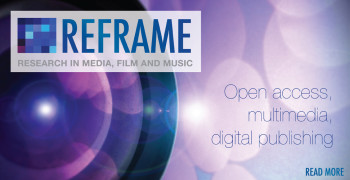


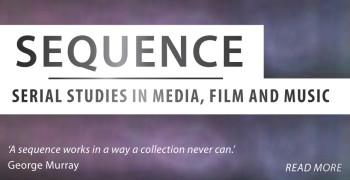
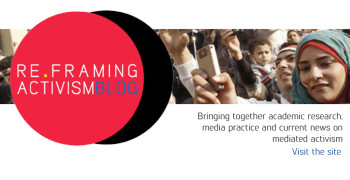
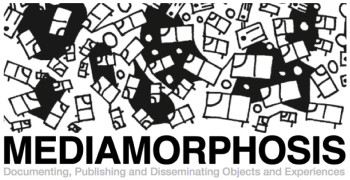
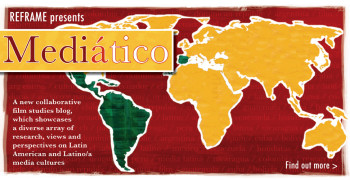

Leave a Reply